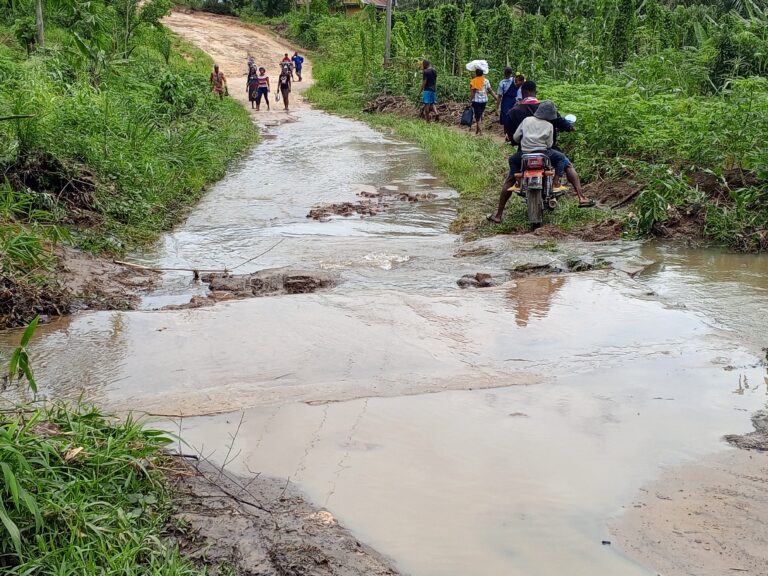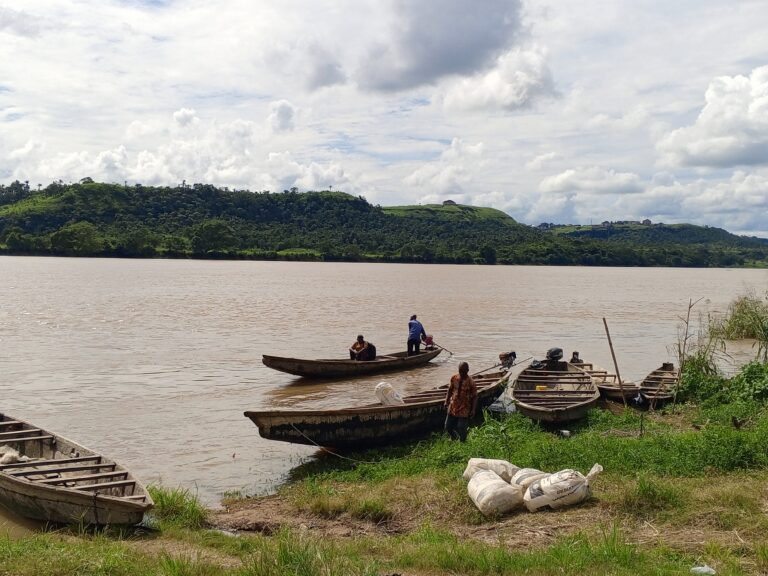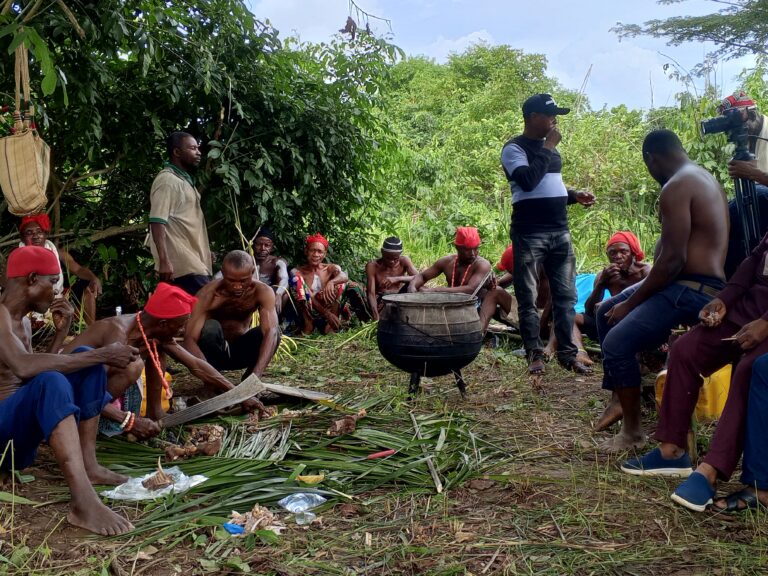By Christian Njoku
In the 1980s Prof. Emmanuel Ayandele, the foremost Vice Chancellor of the University of Calabar and a respected Professor of History declared that “Cross River was an atomistic society perpetually at war with itself” after observing some of the unending skirmishes that had bedevilled the state.
Although Ayandele’s declaration did not go down well with some of the indigenes of the state, it was borne out of an intense observation from the astute academic.
While many believed that the constant squabbles were as a result of the discord between the people of present-day Akwa Ibom and the remaining Cross River before they were separated in the old Cross River, time has shown otherwise.
40 years after his declaration, situations in the state have made Ayandele a somewhat prophet because internally, Cross River has had some communal crises that had spanned for decades and are still on despite efforts to resolve them.
Some of these conflicts include the Nko, Inyima crisis; Nko, Mkpani Crisis; Ugep Ekori crisis; Agoi Ibami, Mkpani crisis; Nko, Agoi Ekpo crisis, Ugep, Idomi Crisis that was said to have been on since 1928 and many others in Yakurr LGA alone.
In Obubura LGA, there is the Ofatura Ovunum crisis; Iyamitet, Ababane crisis; Iyamitet, Adun crisis; and Ofatura Apiapun crisis among others.
There is also the crisis among Urugbam, Egbor, Ipene, and Abanwan communities in Baise LGA while in Abi LGA, the crisis between Ediba and Usumutong and Ebom and Ebijakara was on for over 15 years.
14 out of the 18 LGAs in Cross River had either engaged or are currently involved in one crisis or the other not just within the state but also with communities of neighbouring states like Abia, Akwa Ibom, Ebonyi and Benue in the northern part of Cross River.
The only LGAs that seem not entangled in the web of one communal crisis or the other are Calabar Municipality, Calabar South, Akpabuyo and Bakassi LGAs all in the Southern Senatorial District of the state, except for issues of cultism militancy.
Among these wars, some of the most fascinating were those between Ediba, Usumutong and Ebom versus Ebijakara communities in the Bahumonu nation of Abi LGA, which lasted for over 15 years.
The Bahumonu nation is a collection of nine autonomous communities with the same ancestry, Ediba, Usumutong, Ebom, Ebijakara, Anong, Afafayin, Abeugo, Egonigoni and Bazohure.
With a large expanse of arable land, the Bahumonu nation boasts of agricultural produce such as rice, cassava, yams, groundnut and others in commercial quantity, which makes it an agricultural hub.
Originating from a common ancestral land in Othumosa, the Bahumonu nation in Cross River is bordered on one side, across the river to the Ozizza community in Ebonyi state that depends heavily on its agricultural produce.
It also borders communities in two LGAs that had at one time or the other been involved in brutal communal clashes that had cost lives and properties, Ugep in Yakurr LGA and Ijom in Biase LGA.
However, in spite of its agricultural and fishing potential, a large part of the Bahumonu nation is without electricity, motorable roads, telephone network and other amenities, no thanks to the war between Ediba, Usumutong and Ebom versus Ebijakara.
The crisis in these communities became a full-blown war around 2005 after years of bottled-up disaffection and anger aggravated by rumour-mongering, distrust and mutual suspicions over ownership of lands located in the boundary areas among the communities.
The carnage continued unabated for 15 years with Ebijakara totally dislodged from their land by the people of Ebom who subsequently started taking over Ebijakara’s land, even though, they themselves lived in fear of surprise attacks from the people of Ebijakara who relied on guerilla warfare to surprise their assailants.
For Ediba and Usumutong, two communities that look equally matched in strength, there was massive destruction of lives and properties that could hardly be quantified in monetary terms.
It was not until in 2020 when the youths who had been doing the fighting, maiming and dying with support from some of their elites who were mostly based outside the warring communities, decided to say enough of the killings and destructions.
This miraculous decision was greeted with joy as the youths from the nine communities with tears of mixed feelings, following the 15 years of carnage against their brothers and their brazen audacity to say enough was enough, went round the communities hugging each other and saying nobody would persuade them to kill each other again.
This homegrown approach by the youths hinged on dialogue, as a few of them started the process of talking to each other gradually until they got the buy-in of the youth leaders of the warring communities.
This however was not without its challenges, following the allures of resources for weaponry sent in by elites most of whom were based outside the warring communities but the youths remained focused and steadfast in their peace-building process.
That day, June 20 was officially declared a day of peace by the Bahumonu nation and has been celebrated annually since 2020 by the people in their ancestral land of Othumosa where Christians hold an inter-denominational service while traditional worshippers gather to consolidate the oath of peace, taking in 2020.
Seeing this development, Sen. Ben Ayade, former governor of Cross River set up a reconciliation committee headed by Sen. Ndoma Egba with a view of consolidating peace, repositioning Bahumonu for growth and development and contributing to the Gross Domestic Product, (GDP) of the state.
The committee quickly went to work and after laborious observations, mediations and dialogues with the people, came up with recommendations in 2021 which were agreed upon and signed by the nine communities.
However, like most committee reports, these recommendations are still lying on a shelf awaiting implementation.
The News Agency of Nigeria (NAN) visited the Bahumonu nation during its 2023 Peace Day celebration and observed that, although there was renewed hope from the people, there was also a snag; the much-awaited consolidation of peace and development was taking longer than expected.

meeting during the Peace Day Celebration
After a meeting of the traditional rulers of the communities that ended in a deadlock on the day of the peace celebration, HRM, Ovai Solomon Edward, Paramount Ruler of Abi and Leader of Osumutong told NAN that they have not achieved their desired goal which was for the communities to live in peace.
According to him, “What we have today as peace was the effort of our youths, without them, we would not have achieved anything but today, the youths are becoming tired because they have sustained peace for the past three years yet the elders are not agreeing.
“As far as the peace process is concerned, we have not achieved much because Ebijakara people are still displaced and the boundary issue between Ediba and Usumutong has not been resolved.
“The last administration in the state set up a mediation committee that came up with recommendations, if these recommendations are implemented, it will go a long way in reducing the palpable tension among the communities,” he maintained.
On his part, the Traditional Ruler of Ediba, HRH Ovai Uvara Anani said Ediba went to court and won the case over the disputed land twice and because of this, the Ediba people were superior in the ownership of the land in contention.
He said the people of Usumutong have to negotiate with Ediba and not use force to enter into their land.
“The government came to look into the matter and make peace through the Ndoma Egba-led committee but they refused to tell us the truth about the land; it is a new government now, if they are ready to come and give us the peace we will comply but I will not fight,” he noted.
While the subtle bickering went on, NAN went into the communities and spoke to some residents who said all they wanted was infrastructural development.
In Ebom, Mr Monday James said their roads were bad, they had no electricity and due to these challenges, selling off their agricultural produce had been difficult because of poor access.
He said he was grateful to God that the fighting had ended and they could go to their farms but their communities needed more in terms of development.

Mrs Mary Okoro said the bad road into Bahumonu has affected her business badly as her farm produce were hardly sold out.
“As a woman, I am also pained because our schools have no teachers, and the Primary Healthcare Centres lack basic amenities like water.
“Electricity and manpower are totally out of the question because nobody wants to come here, we are in desperate need of government attention.
However, I am happy that we are no longer fighting because the women and children suffered most in those days of war,” she noted.
On his part, Mr Clement Omina, President, Bahumonu Sociocultural Group said they were able to form an elite committee of sons and daughters of Bahumonu who like the youths swore never to allow war to tear them apart again.
Omina however added that, as good as that decision was, there were still critical issues such as resettling Ebijakara and finding an acceptable boundary between Ediba and Usumutong.
“We are not happy with where we are today because after three years we decided to stop fighting, Ebijakara is not back in their homeland and there are still skirmishes between Ediba and Usumutong.
“We have tried as a people to find our own solution because we know that peace that is homegrown will be more sustainable than whatever is forced on the people from outside.
“But the problem is that as a people from a common ancestry, any decision we take, it is difficult for the other party to accept it if it does not favour them. This is why we need an external arbiter which is the government,” he stated.

He said that for more than 15 years Bahumonu nation was alienated from the government with the simple excuse that the place was not safe, adding that what of now that the killings have ended for three years?
He emphasised that as a people, they had done the most difficult part which was dropping their arms, while appealing to the new government in the state to help ensure total peace and infrastructural development which was a low-hanging fruit for the government in its first 100 days.
Corroborating the view of Bahumonu Sociocultural Group, Dr Earnest Eteng, Chairman of Bahumonu Peace and Development Union said the youths decided to adopt a homegrown approach because according to them, outsiders would not help them, so they had to help themselves.
He maintained that they have been using the youths to uphold peace among the warring communities and engaging in dialogue to ensure its sustainability.
“At this point, we need encouragement from the government, we need an implementation of the recommendations of the Ndoma-Egba-led committee which also highlights the infrastructural need of the Bahumonu nation.
All efforts to meet some of the youth leaders of the communities that had managed to sustain peace in the communities were unsuccessful as they were said to be unhappy with the elders who were still finding it difficult to ensure total peace that would give way for development.
Back in Calabar Mr Davies Etta, Member Representing Abi State Constituency in the Cross River House of Assembly said the committee set up by the former governor did a good job.
While hoping that Gov. Bassey Otu would implement the recommendations of the committee for sustainable peace in the region, Etta called on the governor to remember the promises he made to the people of Abi during his campaigns.
“The ring road project that connects the entire nine communities is a project which when executed will impact all the communities in the Bahumonu nation.
“We are also looking at implementing programmes that will ensure the youths are given scholarships for those that have the capacity to go school while those with businesses are supported with funds.
“If this is done, we will keep the youths busy while providing a conducive environment for government to come and work because we discovered that the chiefs, women and children don’t fight but the youths,” he said.
He appealed to the warring communities that justice may not give them peace adding that absolute peace comes from the hearts of the people by negotiation and sacrifice.
The war in the Bahumonu nation may have ended but like dying embers that could be sparked up again into a massive flame, crisis was still an option on their table, except conscious efforts at development are made to refocus the youths.
The battle for land which is a very important resource to the people because of their agrarian nature will recede if infrastructures such as the ring road that connects the nine communities and electricity are provided.
While this will shift the attention of the youths to other means of livelihood, it will reawaken the economic life of one of Cross River’s agrarian giants.
Importantly, Gov Otu needs to pick the report and recommendations of the Ndoma-Egba Committee set up by former Gov Ayade off the shelf, get it dusted and implement the latter to forestall any relapse.
Subsequently, it is important for the state government to be proactive in nipping any disagreement in the bud before it develops into a full-fledged war, the time to act is now. (NAN)
